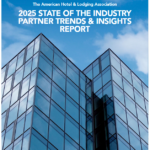By Nicole Vukonich
During the 2019 legislative session, there were efforts to pass a bill to create a statewide restrictive scheduling mandate for certain targeted industries, including hospitality. These proposals would have wiped out the scheduling flexibility the industry is built upon. When the Washington Hospitality Association surveyed employees in the industry, the majority of respondents said that one of the best parts of the industry is having the flexibility to create a schedule that allows them to create their ultimate work/life balance.
The scheduling proposals, as drafted in House Bill 1491 and Senate Bill 5717, were not going to be realistic or possible to implement without significant administrative costs and burdens to members and the hospitality industry. Instead of benefiting both workers and employers, the proposals would have removed scheduling flexibility and the ability to schedule employees without significant penalties to the employer.
[expander_maker id=”1″ more=”Read more” less=”Read less”]
The State Government Affairs team quickly got to work to inform members of the restrictive scheduling bills and identified members’ concerns with these measures. During Hill Climb, at the end of January, small local business owners and Washington Hospitality Association members from across the state told their lawmakers that restrictive scheduling would not work for them and how their businesses would be negatively affected.
With the help of more than 650 members and hospitality industry employees, more than 10,500 emails were sent to lawmakers detailing their concerns and foreseen challenges with the restrictive scheduling bills. These action alerts set new response records for the Washington Hospitality Association. In addition to responding to the action alerts, members and partners played a pivotal role with restrictive scheduling by taking the time away from their businesses to testify in front of the labor committees as well as publishing opinion-editorial pieces in The Seattle Times and the Spokesman-Review.
House Bill 1491 and Senate Bill 5717 both had hearings in the House and Senate labor committees. During the committee process, the bills were updated and, most importantly, in the House, an amendment was added that would exempt the state’s 30 counties out 39 that are classified as rural by the Office of Financial Management. The amendment was adopted unanimously in committee and was a sign that this policy was not ready to become law. The Senate version of the bill took a similar path. Both bills as amended advanced out of the policy committee and headed to the fiscal committees. Again, members engaged with their lawmakers and spoke during the hearings in the House Appropriations Committee and the Senate Ways & Means Committee. By March 1, the fiscal committee cutoff deadline, the bills had hearings, but no further action was taken. Because the bills did not advance past the fiscal committee deadline, they were declared dead for the session.
Restrictive scheduling will return next session, as bills are technically alive for the two years of the biennium. The restrictive scheduling bills will remain in their edited forms unless a new bill is drafted to address many of the concerns that the hospitality industry has raised about restrictive scheduling.
As an organization focused on finding solutions to the most complex problems facing the industry we now have until next session to gather more feedback from association members and determine how we want to address this topic in the future. The State
Government Affairs team will continue to advocate for a hospitality workforce that will continue to be flexible and an industry of opportunity for all.
[/expander_maker]














